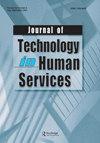使用结构主题模型对文本进行开放式调查回应:了解新加坡新冠肺炎大流行期间父母应对方法的实践演示
IF 1.5
Q2 SOCIAL WORK
引用次数: 5
摘要
开放式调查问题对研究人员理解被调查者的经历至关重要。然而,使用人类编码人员分析开放式响应是一项劳动密集型工作。结构主题建模(STM)是一种从文本数据中发现主题的文本挖掘方法。我们展示了使用STM来分析开放式调查回答,以了解新加坡父母在COVID-19封锁期间是如何应对的。在COVID-19封锁期间,我们对新加坡的199名家长进行了在线调查。为了展示STM分析,我们演示了一个工作流,其中包括数据预处理、模型估计、模型选择和模型解释的步骤。基于模型诊断和研究人员的专业知识,一个18个主题的模型最适合数据。受访者描述的常见应对方法包括“配偶支持”、“日常事务/计划”和“管理期望”。某些话题的流行程度因受访者的育儿压力水平和父母是父亲还是母亲而异。STM提供了一种高效、有效和可复制的方法来分析文本数据,例如开放式调查回复和案例记录,可以补充研究人员的知识和技能。STM可以用作多阶段研究过程的一部分,或用于支持其他分析,例如澄清定量结果和从定性数据中确定初步主题。本文的补充数据可在https://doi.org/10.1080/15228835.2022.2036301上在线获得。本文章由计算机程序翻译,如有差异,请以英文原文为准。
Text-Mining Open-Ended Survey Responses Using Structural Topic Modeling: A Practical Demonstration to Understand Parents’ Coping Methods During the COVID-19 Pandemic in Singapore
ABSTRACT Open-ended survey questions crucially contribute to researchers’ understandings of respondents’ experiences. However, analyzing open-ended responses using human coders is labor-intensive. Structural topic modeling (STM) is a text mining method that discover topics from textual data. We demonstrate the use of STM to analyze open-ended survey responses to understand how parents coped during the COVID-19 lock-down in Singapore. We administered online surveys to 199 parents in Singapore during the COVID-19 lock-down. To show a STM analysis, we demonstrated a workflow that includes steps in data preprocessing, model estimation, model selection, and model interpretation. An 18-topic model best fit the data based on model diagnostics and researchers’ expertise. Prevalent coping methods described by respondents include “Spousal Support,” “Routines/Schedules,” and “Managing Expectations.” Topic prevalence for some topics varied with respondents’ levels of parenting stress and whether parents were fathers or mothers. STM offers an efficient, valid, and replicable way to analyze textual data such as open-ended survey responses and case notes that can complement researchers’ knowledge and skills. STM can be used as part of a multistage research process or to support other analyses such as clarifying quantitative findings and identifying preliminary themes from qualitative data. Supplemental data for this article is available online at https://doi.org/10.1080/15228835.2022.2036301 .
求助全文
通过发布文献求助,成功后即可免费获取论文全文。
去求助
来源期刊

JOURNAL OF TECHNOLOGY IN HUMAN SERVICES
SOCIAL WORK-
CiteScore
4.20
自引率
6.70%
发文量
6
期刊介绍:
This peer-reviewed, refereed journal explores the potentials of computer and telecommunications technologies in mental health, developmental disability, welfare, addictions, education, and other human services. The Journal of Technology in Human Services covers the full range of technological applications, including direct service techniques. It not only provides the necessary historical perspectives on the use of computers in the human service field, but it also presents articles that will improve your technology literacy and keep you abreast of state-of-the-art developments.
 求助内容:
求助内容: 应助结果提醒方式:
应助结果提醒方式:


